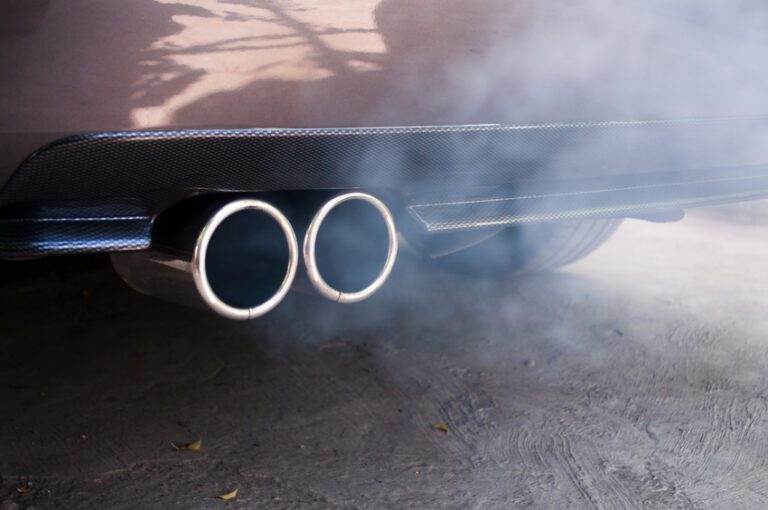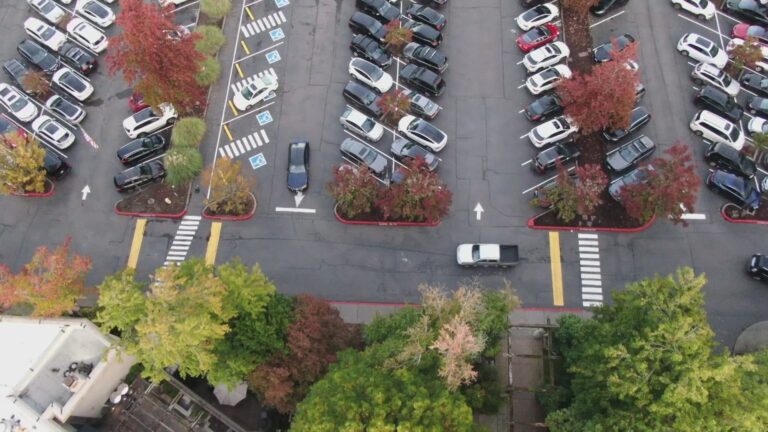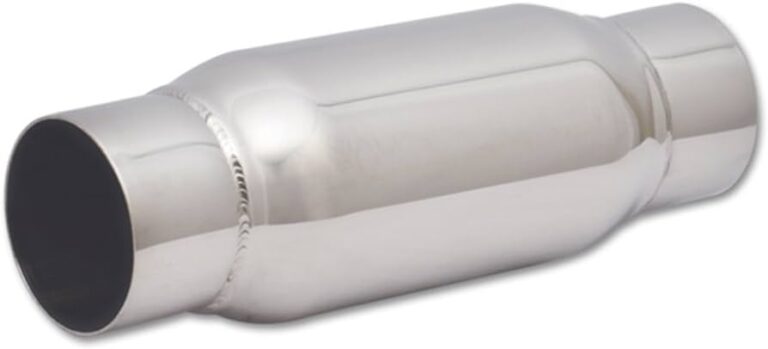Damaged Muffler Sound: Unveiling the Roar Within
The damaged muffler produces a distinct noise indicating a problem with the exhaust system. A damaged muffler can result in a noticeable noise when your vehicle is running, which can be an indication of a problem with your exhaust system.
If you hear any unusual sounds, such as loud rumbling or clunking coming from the back of your vehicle, it is likely that your muffler has been damaged. The muffler plays a crucial role in reducing the noise produced by the exhaust gases, and when it becomes damaged, it can lead to poor performance and even potential safety issues.
We will explore the various causes of a damaged muffler sound and the necessary steps to address the problem effectively. We will also discuss the importance of regular maintenance to prevent muffler damage and ensure the optimal performance of your vehicle.
Signs Of A Damaged Muffler
A damaged muffler can lead to several noticeable signs that indicate the need for inspection and repair. One of the most common indications is an unusual roaring sound coming from the exhaust system. This loud noise is often a result of holes, cracks, or leaks in the muffler. It is important to get this issue addressed promptly as a damaged muffler can affect the overall performance of the vehicle.
Another sign of a damaged muffler is decreased fuel efficiency. A malfunctioning muffler can disrupt the airflow and cause the engine to work harder, resulting in increased fuel consumption. Keeping an eye on the gas mileage can help identify potential issues with the muffler.
Additionally, a strong exhaust odor can indicate a damaged muffler. If there is a foul smell coming from the exhaust system, it could mean that the muffler has become corroded or has a hole in it. This can also be a sign of other issues with the exhaust system that need to be addressed.
Causes Of Muffler Damage
htmlCorrosion and rust, impact or physical damage, and clogging and blockages are the primary causes of muffler damage. Over time, constant exposure to moisture, road salt, and other environmental factors can cause corrosion and rust to develop on the muffler. This corrosion weakens the integrity of the muffler, leading to leaks and holes that result in a damaged muffler sound.
Impact or physical damage, such as hitting a curb or a speed bump too hard, can also cause damage to the muffler. This can result in dents, cracks, or even complete detachment of the muffler from the exhaust system, leading to an altered sound.
Clogging and blockages, often caused by a buildup of debris or excess carbon deposits, can also negatively affect the muffler’s functionality. These blockages restrict the flow of exhaust gases, leading to increased pressure and strain on the muffler, which can eventually cause damage and result in an unusual sound.
Muffler Design And Function
The design and function of an exhaust muffler play a crucial role in minimizing the sound produced by a vehicle’s exhaust system. The structure of a muffler consists of various components that work together to reduce noise levels. One such component is the sound dampening technology, which is incorporated into the muffler’s design to absorb and dissipate sound waves.
The exhaust muffler is typically made up of a series of chambers and tubes, strategically designed to create a path for the exhaust gases to flow through. This complex structure helps in reducing the intensity of the sound by utilizing acoustic principles. Additionally, the muffler is filled with sound-absorbing materials such as fiberglass or steel wool, which further dampens the noise generated by the engine.
By effectively minimizing the sound produced by the exhaust system, the muffler contributes to a quieter and more comfortable driving experience. However, it’s important to note that the design and structure of the muffler can also have an impact on the engine’s performance. Factors such as backpressure and exhaust flow restrictions can affect the overall efficiency of the engine.
Common Muffler Problems
htmlDamaged muffler sound can be caused by a variety of common issues. One such problem is holes and leaks in the muffler, which can develop over time due to corrosion or general wear and tear. These holes and leaks allow exhaust gases to escape, resulting in a louder and more noticeable muffler sound.
Another potential cause is broken baffles or tubes within the muffler. Over time, these components can become damaged or loose, leading to irregular airflow and an altered muffler sound. Additionally, internal build-up of carbon deposits can occur within the muffler, restricting the flow of exhaust gases. This accumulation can create a muffled or distorted sound, indicating potential damage to the muffler.
| Common Muffler Problems |
|---|
| Holes and Leaks |
| Broken Baffles or Tubes |
| Internal Build-Up and Carbon Deposits |
Diy Solutions For Minor Damage
Dealing with a damaged muffler sound can be frustrating, but fortunately, there are DIY solutions available for minor damage. When it comes to patching small holes, begin by cleaning and preparing the affected area. Use sandpaper to smoothen the surface and remove any rust or debris. Then, apply a high-temperature epoxy or muffler patching compound to seal the hole. It’s important to follow the manufacturer’s instructions and ensure the product is compatible with your vehicle’s exhaust system.
If the damage is more extensive and patching is not possible, consider replacing the damaged sections. This may involve removing the old muffler and attaching a new one using clamps or welding. Ensure you have the correct replacement parts and consult your vehicle’s service manual for guidance.
In addition to repairing or replacing damaged sections, cleaning internal build-up can also help improve the performance of your muffler. Use a wire brush or muffler cleaning tool to remove carbon deposits and other debris from the inside of the muffler. Regular maintenance and cleaning can help extend the lifespan of your muffler and prevent further damage.
Professional Muffler Repair Services
When your car’s muffler is damaged, it can create a loud and unpleasant noise that can be quite annoying. However, the sound is not the only issue; a damaged muffler can also lead to decreased fuel efficiency and potential exhaust leaks. That’s where professional muffler repair services come in. These services offer a comprehensive inspection and diagnostic testing to determine the exact cause of the problem.
Once the issue is identified, certified mechanics can provide you with a range of muffler replacement options. Whether it’s a minor repair or a complete replacement, these experts have the skills and knowledge to get the job done right. Additionally, many professional muffler repair services offer warranties on their work, giving you peace of mind knowing that you’re covered in case of any future issues.
Regular Muffler Inspections
Regular Muffler Inspections
A properly functioning muffler is essential for a quiet and efficient vehicle. Regular inspections are necessary to ensure its optimal performance and to prevent potential damage. Checking for Visible Damage: Inspect the muffler for any visible signs of damage, such as rust, cracks, or holes. These issues can affect the overall performance of the muffler and should be addressed promptly to prevent further damage.
Recognizing Early Warning Signs: Pay attention to any strange noises coming from the muffler, such as a loud rumbling or hissing sound, as these may indicate a problem. Additionally, a decrease in fuel efficiency or a noticeable decrease in engine power can also be early warning signs of a damaged muffler.
Scheduling Routine Maintenance: To prevent muffler damage and ensure its longevity, it is important to schedule routine maintenance. This may include regular inspections, cleaning, and necessary repairs. By staying proactive and addressing any potential issues early on, you can avoid costly repairs and extend the lifespan of your muffler.

Credit: www.sherwoodmotorcars.com
Proper Muffler Care And Maintenance
One of the most common issues that car owners encounter is a damaged muffler sound. To avoid this problem, it is essential to practice proper muffler care and maintenance. Here are some tips to protect your muffler from damage:
Avoiding Road Debris And Impact
- Regularly inspect your vehicle’s undercarriage for any signs of damage or loose parts.
- Avoid driving over large potholes, speed bumps, or other road hazards that can cause impact damage to the muffler.
- Stay vigilant and navigate around debris on the road, such as rocks, branches, or construction materials that may hit or puncture the muffler.
Safe Driving Practices
- Follow safe driving practices to minimize the risk of accidents that can damage the muffler. Observe speed limits and maintain a safe distance from other vehicles.
- Avoid sudden acceleration or braking, as it can put unnecessary stress on the exhaust system, leading to damage.
Protecting Against Moisture And Rust
- Avoid driving through flooded areas or deep puddles, as excessive exposure to water can cause rust and corrosion in the muffler.
- Regularly wash your vehicle and pay extra attention to the undercarriage to remove any dirt, salt, or debris that may accelerate rust formation.
- Consider applying a rust protectant or coating to the muffler to provide an additional layer of protection against moisture and rust.
By implementing these practices, you can ensure the longevity and optimal performance of your muffler, avoiding the dreaded damaged muffler sound.
Frequently Asked Questions On Damaged Muffler Sound
What Does A Damaged Muffler Sound Like?
A damaged muffler can produce a loud noise or a rumbling sound that is often noticeable while driving.
How Do I Know If My Muffler Is Damaged?
You can tell if your muffler is damaged by checking for signs like excessive noise, rust, or a decrease in performance. Look for any cracks or holes in the muffler, and pay attention to any strange smells or vibrations. If you notice these issues, it’s recommended to have it checked by a professional as soon as possible.
What Happens If Your Muffler Is Damaged?
A damaged muffler can cause increased noise levels and decreased engine performance. It may also lead to emission problems and potential damage to other components. It is important to get a damaged muffler repaired or replaced promptly to avoid further issues.
Can I Drive With A Bad Muffler?
Yes, it is not recommended to drive with a bad muffler. A faulty muffler can lead to noise pollution, decreased engine performance, and potential damage to the exhaust system. It is advisable to have the muffler repaired or replaced for safe and efficient driving.
Conclusion
Overall, if you notice a damaged muffler sound in your vehicle, it is important to address the issue promptly. Not only can a damaged muffler affect the performance of your vehicle, but it can also lead to potential safety hazards.
By seeking professional help, you can ensure that your muffler is repaired or replaced, restoring the smooth and quiet operation of your vehicle. Don’t delay, take action today!







